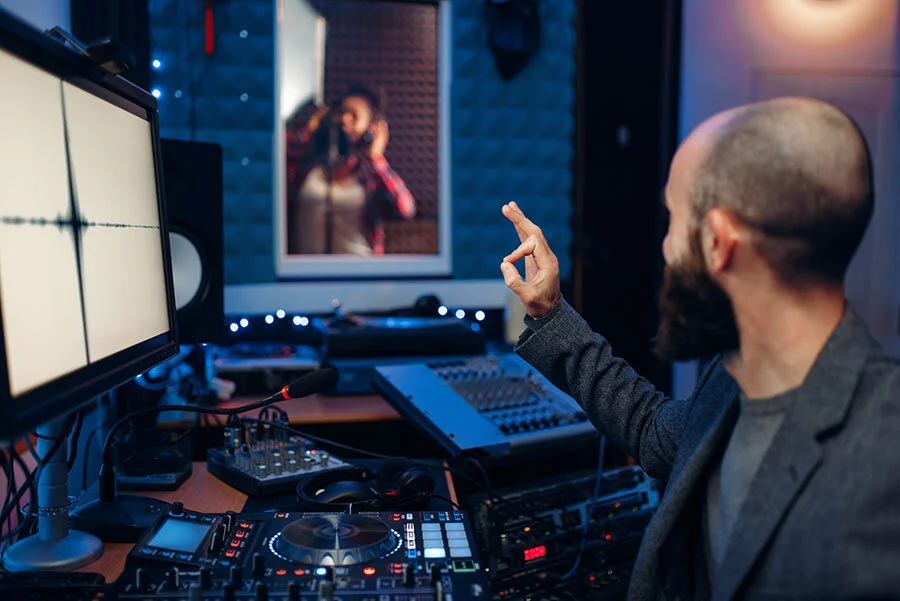DON’T GET SCAMMED: What Every Artist Should Do to Avoid Music Industry Fakes
Artists are constantly victimized by music industry scammers who promise success, but don’t always deliver. Today, we’ll be exploring some of EAR’s tactics which our artists use to successfully avoid fraudulent deals.
Picture this:
You have a new release coming up. You set aside approximately $3,000 for a marketing campaign. Then, you’re contacted by someone claiming to offer the services similar to that of a professional agency.
Their Promise:
They tell you they love your sound and promise playlist placements, sync licensing and radio ads. They tell you that many marketing agencies require north of a $15,000 marketing budget at minimum. However, they’ll only charge you a fraction of that because they believe in you so much!
Sounds like a great deal, if you didn’t do your own research!
The Reality:
The scammer takes your money and pitches your music to a site that you yourself could’ve just as easily accessed for a $10/month subscription. They pocket the remaining cash and you just lost thousands.
The scammer knows growing artists, such as yourself, aren’t familiar with this site, so they took advantage of you.
The Solution - What to Do if You Suspect a Scam:
So what should you have done here?
Always look up the name of the person and business reaching out to you before engaging. Is their website easily discoverable? Do their socials appear when you type them into Google?
If they seem credible, the next step is to search for past clients of theirs. Many successful artist-services have testimonials. Lack of a transparent track record is a big red flag. On the other hand, too many testimonials can also be a red flag.
Beware of bots! Many scam services that promise a large increase in following utilize bot followers to inflate the numbers you recieve. It may look good on paper, however it messes with your social media algorithm, as the streams, likes, and engagement your profile receives are not organic and do not come from real users. Therefore, it harms your chances of establishing a wide outreach. If you find that a “marketing specialist” following or their clients’ followings consist of many random usernames with no profile picture, they likely use bots. If you find their profiles have large followers and like numbers, but low engagement (e.g. comments, shares), it’s likely due to bots. Furthermore, if Spotify catches you using fake streams, they will withhold royalties and kick you off of their platform.
A great test of an organization’s legitimacy is their legal team. Are they bringing up NDAs (Non Disclosure Agreements)? Are they including privacy guidelines in their email signatures? When it comes to payment, are they documenting receipts (i.e. an official document indicating the date of the exchange, the amount of money paid, and the service for which the artist paid)? These would all indicate a more professional, and likely more legitimate, business partner.
Speaking of receipts, you should consider requesting and keeping your receipts. As an artist, you should always make sure to ask for proof of service and money exchanged, to give yourself some insurance in case things go awry in the future. Without these documents, there is no proof that the exchange was legitimate, and you could lose a large sum of money with no legal way to get it back. A credible agency will always yield receipts.
Lastly, If it seems too good to be true, it probably is. Anyone promising massive overnight success is likely buttering you up for a scam. Real success is hard to achieve! Real success takes time; that’s why it feels so good when it happens.
Takeaway
Many beginner artists who are so enthusiastic about their music can be unaware of these traps. However, with a little more research, education and a professional team to support you, these mistakes can be avoided and you can take your career to the next level in an organic and authentic way.
EAR hopes that by educating not only our artists, but the music community at large, we can help prevent and eventually entirely eradicate these scams. If you are a growing artist looking for further guidance in the industry, we highly recommend checking out our managerial services.
We take care of the business while you can focus on what you do best: making music.
P.S. You’ll notice that we do pass all the aforementioned criteria.



